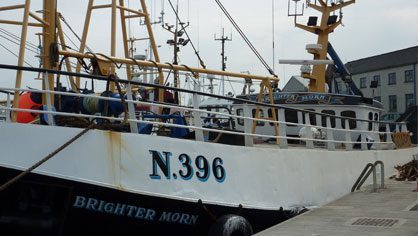31 December 2012
The NFFO and Cefas are co-hosting a workshop for fishermen, scientists, managers and policy experts on 9-10 January 2013 as part of a cutting-edge Fisheries Science Partnership (FSP) project to evaluate ways of providing fully documented fisheries.
The “Scoping Industry Approaches to Fully Documented Fisheries” project planned the workshop to consider how the “full documentation of catch” can be delivered for a range of fisheries.
This goal is seen as key to delivering a results-based fisheries management system under a reformed CFP. In addition, resolving the problems of data-poor fisheries could bring real and direct benefits to fishing businesses.
The FSP project is evaluating CCTV alongside other approaches such as self-sampling, reference fleets and other technologies to see how they might apply to different fisheries.
An important aspect of the project – and fully documented fisheries generally – is to facilitate industry-implemented ways of discard reduction. In addition, the project is using case studies to help inform the way forward. These include Irish Sea Nephrops, and the South West gillnet and mixed trawl fisheries.
Cefas project manager Paul Dolder said: “The CFP reform proposals and general approach agreed by the Council of Ministers indicate a requirement for full documentation of fishing and processing activities. This project is assessing what data can be collected at sea or onshore, what methods are the best for different fisheries and how fully documented fisheries can support the science and evidence base.
NFFO Assistant Chief Executive Dale Rodmell said: “This project will set existing moves towards fully documented fisheries into a wider context. We aim to define how to better link managers, scientists and the fishing industry into a virtuous circle of improved evidence and reduced wastage of the resource. This, in turn, can lead to improved opportunity, profitability and sustainability.”
The workshop findings will be included in a report to Defra to inform the optimal way to deliver the full documentation of catch, evidence required for management under a reformed CFP.

